General
Multidenominational Composition of Uganda a plus for Tolerance
Published
9 years agoon
According to Wikipedia, Uganda is a religiously diverse country with Roman Catholics and Anglicans at 44.5% and 39.2% respectively making up the largest percentage of the population. Muslims follow at 10.5% while the remainder of the population consists of Pentecostal, Seventh Day Adventist, Orthodox Christian and other Christian faithful, not to mention the Bahai Faith as well as those who believe in Traditional faith systems. As such, Uganda is a fairly multidenominational society that is gradually becoming cosmopolitan according to a public dialogue organized by the University Forum on Governance (UNIFOG) in partnership with Konrad-Adenauer-Siftung (KAS).
Held under the theme Perspectives on Uganda as a Multidenominational Society on 27th March 2015. the Public Dialogue sought create a platform for Staff, Students and the general public to address growing concerns of radicalization especially in the face of rising terror attacks. In his keynote address, Mr. Mwambutsya Ndebesa, Lecturer-Department of History, College of Humanities and Social Sciences (CHUSS) pointed out that Uganda had taken major steps in forging interdenominational harmony through umbrella bodies like the Uganda Joint Christians Council (UJCC) and the Inter-Religious Council of Uganda (IRCU). He however pointed to: the emergence of sexual and cultural politics; the use of religion as an instrument for political mobilization; the overlap of poverty and religion; the aggressive measures of Pentecostal Churches to convert Muslims to Christianity; the infiltration into Uganda of forms of religious fundamentalism from USA, the Arab world, Pakistan and Iran; and perceptions and feelings of economic and political exclusion by some religious groups as six threats of interdenominational dialogue in Uganda.
Mr. Ndebesa urged the audience to guard against imperialism from both the USA and the Arab world coming into Uganda through religion. “They are creating tensions here which are unnecessary; if we are going to reject imperialism, let us reject religious imperialism. To be religious, you don’t have to come from the USA or the Arab world” he expounded.
He noted that the social fabric in Uganda is founded on interfaith marriages and families, which accords the nation the opportunity to avoid extremism associated with faith. “In Uganda there is no official state religion and no religious instrumental laws such as the law on blasphemy or apostasy laws such as those in the Sudan, Saudi Arabia and Pakistan. In other countries, if you convert to another religion, you would have committed apostasy and the punishment is death,” shared Mr. Ndebesa.
In the panel discussion that followed, Immam Kasozi, Islamic Scholar and Lecturer at the Islamic University in Uganda, citing revolutions such as the Arab Spring, the Iran-Arab world war and Uganda’s own inter-religious battles noted that politicians have seized the opportunity to make use of inter-religious differences to wage proxy wars. “The whole problem is neither Shia-Sunni, nor Christian-Muslim; because we still co-exist and work together, but rather people who have their special agenda will do that…” Immam Kasozi said in reference to the root cause of inter-religious conflict.
Commenting on the origin of great names such as Al-Qaeda, Boko Haram, Al-Shabaab, ICS and ICL, Immam Kasozi pointed to the USA as the source and owner of all these names to be used as “an opportunity to hit on the less suspecting Muslims especially those that did not have enough knowledge of their own religion.” He then went on to give brief historical backgrounds on Al-Qaeda and Al-Shabaab.
The second panelist of the day Assoc. Prof. Deusdedit Nkurunziza, Lecturer, Peace and Conflict Studies, CHUSS, noted that in addition to being multidenominational, Uganda is also multicultural, multiethnic, multi-political and is gradually becoming a cosmopolitan state. He noted that while Uganda was experiencing growing cases of radicalization, religious intolerance and hate speech, this state of affairs was nothing compared to the past decades of insurgencies and wars.
Dr. Nkurunziza urged the audience to be proud of their religious heritage and proposed four approaches to help Ugandans become more human rights aware and conflict-sensitive; i. To be liberal-democratic so as to address power struggle and identity issues ii. To have religious liberty iii. To have religious freedom and iv. The rule of law. He urged the authorities concerned to address the issue of poverty as it seemed to be a great contributor to radicalization. “In our being democratic, liberal or humane, the question of poverty is an issue and let us think strategically on how to change our mindset from the issues of poverty and profitability,” he added. He further noted that Africa was still lucky to have the family institution intact but noted that today, the family faced a disaster as Fathers and Mothers were increasingly not being able to take care of their own children. As a result, they were willing to let them go for shocking amounts as low as UGX 100,000/= “this is the highest level of poverty!” he exclaimed.
“Personally what scares me the most when I walk on the streets of Kampala is not religious intolerance. Religious intolerance is less than any other kinds of intolerance we have,” said Dr. Sarah Ssali the third panelist of the afternoon as she commenced her submission. She noted that any plausible intervention to radicalization in Uganda ought to encompass the different contours of radicalization. She expressed her discontentment with the association of radicalization with religion only, noting that this would inadvertently render all the interventions faulty.
“Previously the radicalization was against communists, and before that racial and yet when other forms like genocides have gone on in this world, we don’t call it radicalization but tribalism, racism and so many other things” observed Dr. Ssali in support of her argument. She further shared that radicalization has a very enduring history along the lines of race, gender, tribe etc and often breaks forth when the boundaries of tolerance crumble. This served to further reinforce her argument that radicalization is a process and not an event, and that no one becomes radical or extremist overnight. She noted that radicalization is a threat to us all and shared the example of Boko Haram in Nigeria where the victims are not only Christians but also Muslims.
She proposed direct interventions such as identifying the causes and moving in on them but however warned that this may in the end appear be confronting only one religion. Dr. Ssali then shared that in such cases indirect interventions which identify any form of hate speech and call upon the entire community to denounce it could be used. She called upon everyone to appreciate the different ethnicities, denominations and cultures that make up Uganda in order to cement our unity in diversity.
In his response to the panel discussion, Mr. Ndebesa urged all participants not to confuse religion with ethics, noting that intolerance was not necessarily a preserve of religion. He explained his point by observing that countries with the highest atheist populations are not necessarily the most intolerant.
The panel discussion moderator Mr. Yusuf Kiranda a Programme for Africa Leadership fellow at the London School of Economics and Political Science then took discussion to the audience whose input raised issues such as; politics and its ideals as a cause of chaos, misinterpretation of religious laws, empowering institutions to enforce laws, when religious groups claim responsibility for unlawful acts, poverty as a cause of radicalization and many others. Dr. Paddy Musana, Department of Religious & Peace Studies, CHUSS commenting as a student of New Religious Movements in particular observed that every new form religious manifestation is as a result of cultural changes. “We in our fallen nature tend to emphasize our differences and not our commonalities and as long as we feel threatened, we construct a new identity to protect our interests” he said. Dr. Musana stressed that Uganda as a nation has a reason to celebrate 16th November; the UNESCO International Day for Tolerance, owing to the diversity which is even manifests itself in the composition of our extended families.
In more responses that followed, Dr. Nkurunziza urged the audience to look up and read MUASA Chairperson-Dr. Muhammad Kiggundu Musoke’s PhD thesis entitled “International Islamic Fundamentalism: A Case Study of Uganda”. He said that this thesis would help all parties present further expound on the discourse on multidenominational societies and radicalization. He thereafter urged the audience to embrace Ubuntu-African Humanism; which is Africa’s contribution to globalization.
Mr. Ndebesa noted that education can go a long way to de-radicalize societies, taking the example of Europe where the age of enlightenment played a great role in stopping religious killings, establishing tolerance and critical thinking. He further proposed that every student in Makerere should pursue a course in critical thinking.
Dr. Ssali on the other hand urged participants to desist from looking at the enemy as external and care for each other as Ugandans. She further noted that intolerances always arise when economic resources reduce and that structural adjustment programmes that were meant to rebuild societies and people have only ended up fracturing them.
Immam Kasozi in response to some of the questions on poverty chose to define it as a lack of ideas, association and relationship. He urged participants to appreciate their unity in diversity as Ugandans and not to only identify Ugandans or non-Ugandans based on distinctive attributes. He further urged leaders to stop hate campaigns and avoid selfishness and mistrust.
This public dialogue organized by UNIFOG and KAS whose Executive Secretary-Mr. Bruce Kabaasa and Programme Officer Ms. Maike Messerschmidt respectively gave opening remarks was indeed a step in the right direction in as far as preaching the message on tolerance and demystifying radicalization in Uganda are concerned. The take home message Learn to treat everyone with dignity and respect for our diversity is our strength was indeed resounding and a good note on which to start the next dialogue.
Article by Public Relations Office.
You may like
General
Mak DARP Project Launch to Revolutionise Management of Academic Records
Published
1 day agoon
April 22, 2024By
Mak Editor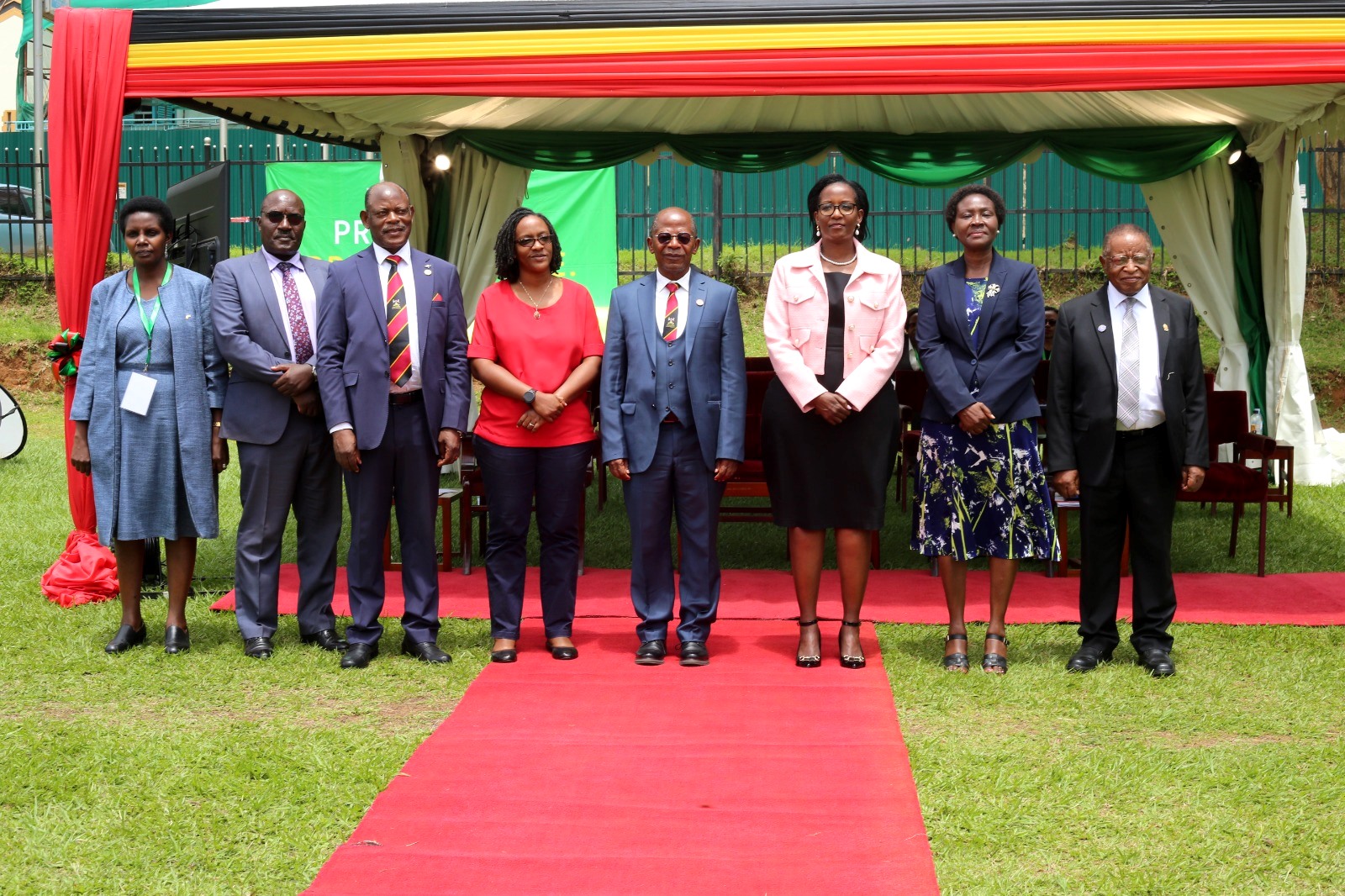
By Ritah Namisango
“This initiative, funded by the Government of Uganda through Makerere University Research and Innovations Fund in partnership with the Mastercard Foundation, represents a significant step forward in our efforts to modernize and digitalize our academic processes. It’s therefore with great pleasure and pride that I launch the Digitalization of Academic Records and Processes project at Makerere University, and I commission the Registry of Students’ Records and the Archive of Students’ Records,” stated the Minister of Education and Sports, Hon. Janet Kataaha Museveni represented by the State Minister for Higher Education, Hon. John C. Muyingo.
As the world continually evolves from manual and traditional methods of records management to modern and digitalized processes, Makerere University launched the Digitalization of Academic Records and Processes (DARP) project to ease the storage, retrieval and acquisition of academic documents by her stakeholders.
The project has digitalized records and implemented new processes as well as established a digital state-of-the-art storage facility at the Senate Building to securely store university academic documents. The digitization process comes along with a university policy that guides on how to record, manage, retrieve and dispose of records not in use. This project is designed to reduce on the substantial amount of space that paper storage systems occupy as well as safeguard records from disasters like fire.
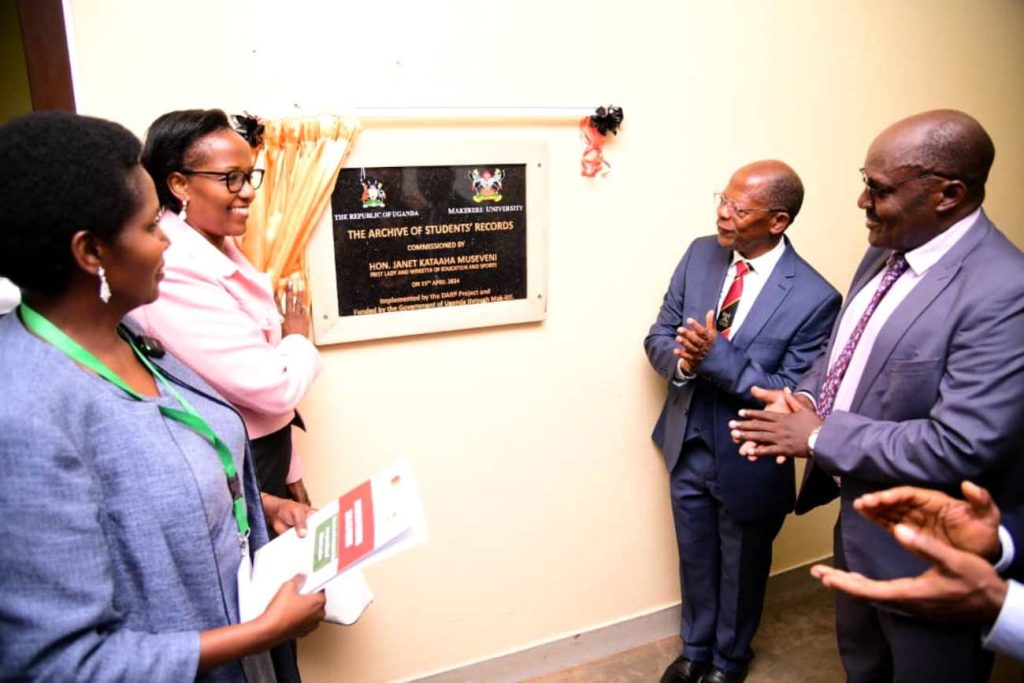
Officiating at the launch of the DARP project on Friday 19th April, 2024 at Makerere University Freedom Square, Hon. John C. Muyingo, affirmed on behalf of Hon. Janet Kataaha Museveni that the launch was a significant milestone in the history of Makerere University.
The Education and Sports Minister further noted that in today’s fast-paced world, universities must manage massive amounts of academic information, and efficient record keeping necessitates that the information is accurate, accessible and secure, benefiting both the institution and its stakeholders. She noted that the DARP system would streamline the processes of managing and accessing academic records, resulting in significant timesaving for students and other stakeholders at the university and beyond.
“Digitalization of academic records and processes is an innovation set to revolutionize the way records are managed by addressing pressing public concerns such as efficiency, security, integrity and accessibility as well as eliminating the unnecessary delays in the processes. The traditional manual approach, while effective in its time has become increasingly challenging to sustain in this digital world, therefore, digitalizing academic records and processes provide crucial responses to the monotonous questions that the outdated manual system never addressed,” stated the Minister’s speech.
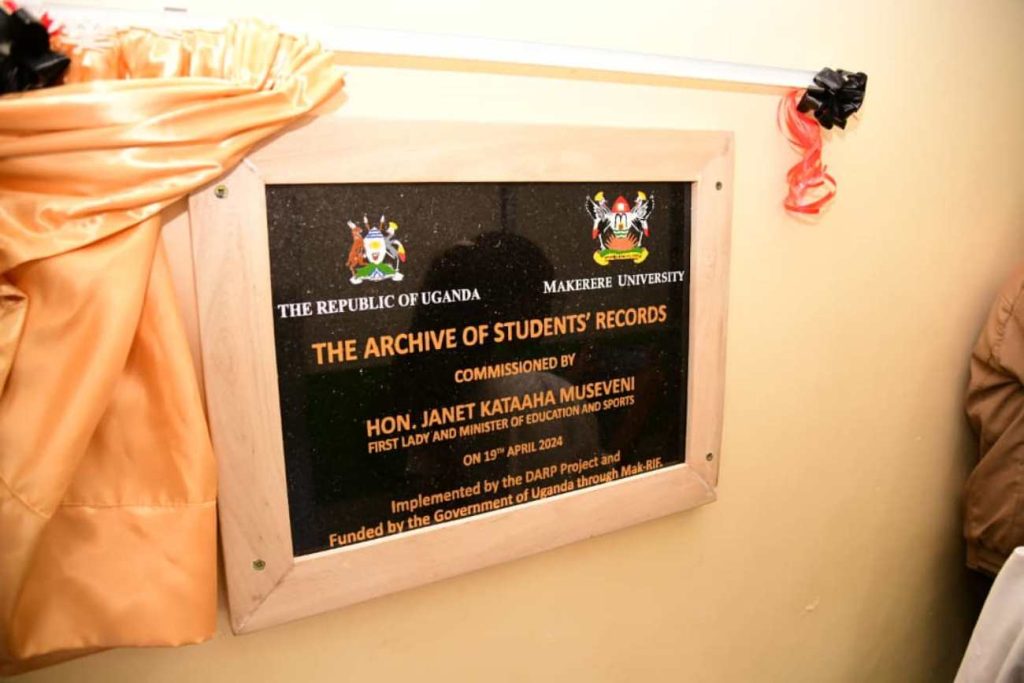
Having outlined the challenges and risks that the traditional paper-based record keeping systems present such as the storage space factor, the risk of mixing active and inactive records, the high rate of wear and tear as well as vulnerability to manipulation of records, the Minister commended Makerere University on the enviable track record of efficiently managing and securely storing its academic documents, Senate minutes, curricula, examination results and students files for nearly a century, despite political upheavals and other challenges.
She observed that digitalized systems would make academic records more accessible to the students and eliminate the frustration of delays caused by bureaucratic inefficiencies and the outdated paper system, enabling them to timely take the necessary steps in academic and professional progression.
As the University embarked on its journey of digital transformation, Hon. Janet Kataaha Museveni equally applauded Makerere for continuously upholding its commitment to academic excellence, research and innovation. She advised the fraternity to stay committed to the principles of innovation and inclusiveness that define the University. As such, she urged them to embrace the digital transformation wholeheartedly so as to harness the power of technology and enable Makerere University to remain a beacon of excellence in the academic world.
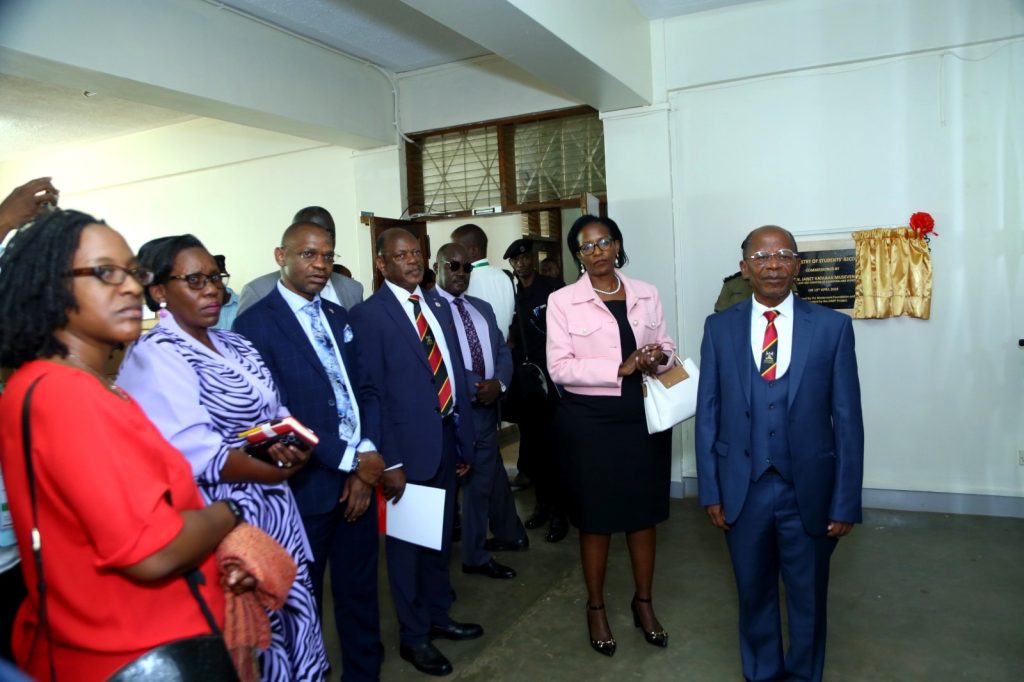
“Since its establishment in 1922, Makerere University has been a beacon of knowledge and learning, shaping the minds of generations of students and contributing significantly to the development of our nation, Africa and the world at large. Thank you for these brains. Your hard work, expertise, and dedication were instrumental in building this DARP project to realization. I am confident that you will have a lasting and positive impact on this university and the entire education sector, not only in Uganda, but the entire world,” said Hon. Janet Museveni.
The First Lady expressed her gratitude for the partnership with Mastercard Foundation and the support it renders in advancing education and innovation at Makerere University.
The Vice Chancellor, Prof. Barnabas Nawangwe highlighted that the launch of the DARP project was not only a landmark achievement for Makerere University, but also a confirmation of the importance that the University Council and Management attach to the role that digitalization and e-services play in implementation of the University strategic plan that continually strives for a professionally managed university.
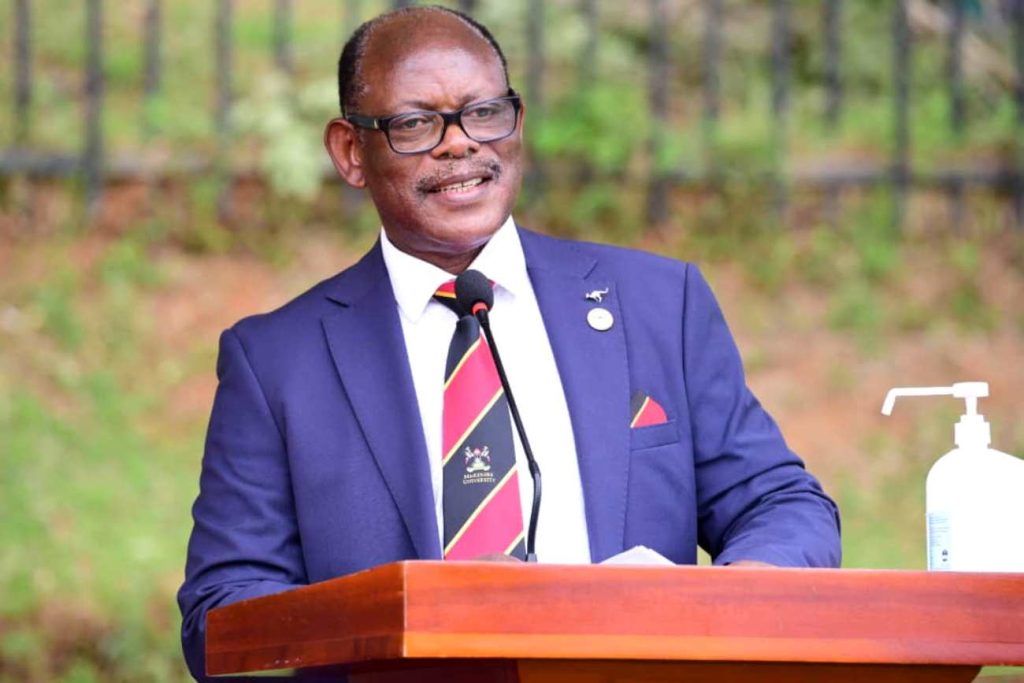
The Vice Chancellor revealed that the official launch of the DARP Project, undertaken in-house by a hardworking team of University staff, was a financial gain on the part of the University and an additional asset in the quest to improve efficiency and effectiveness as far as the University academic records and processes are concerned.
“Our current drive has been the continued digitalization of various business processes and services so as to be more responsive to the dynamic needs of our students, staff and stakeholders. We have been able to achieve this through intentional development of our in-house information systems development capacity, which has saved us a lot of funds in terms of initial purchase as well as annual license renewal costs,” said the Vice Chancellor.
Prof. Nawangwe stated that the DARP project has greatly contributed to the timely and improved service delivery to students and clients. He added that the ultimate goal is to enable students download their own transcripts without need for elaborate physical processes at the university.
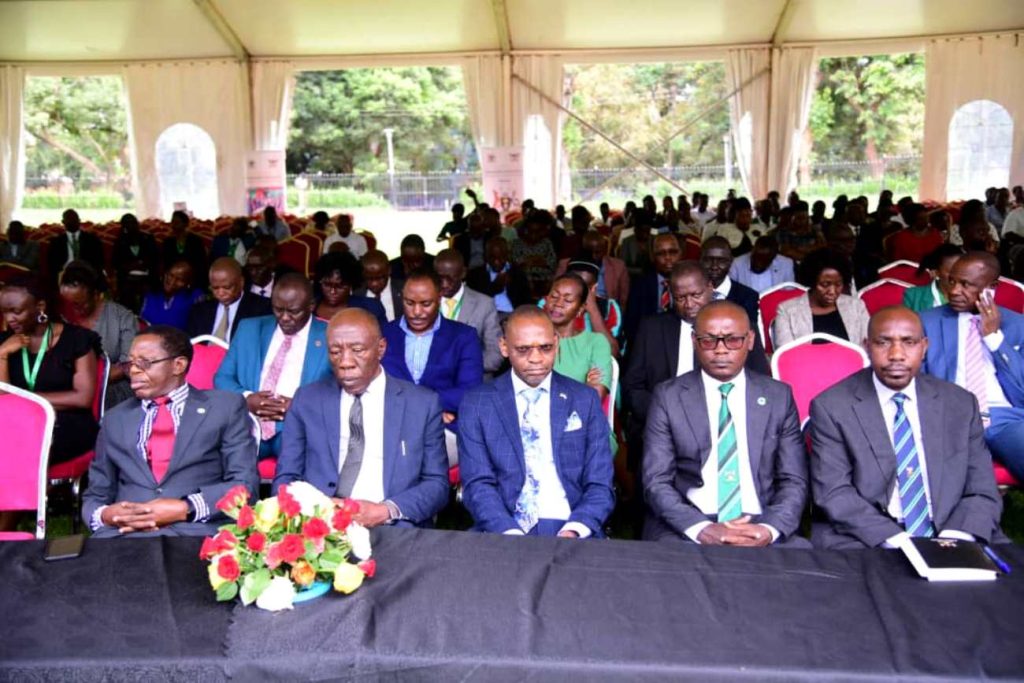
“During the 74th graduation ceremony, Makerere University was able to issue academic transcripts to qualifying students before graduation. I am pleased to inform you that we succeeded in issuing of academic transcripts before the graduation date because of the DARP project, which we are launching today. With the digitalization of students’ academic records, the University is now in a better position to provide the required information and data on time,” said the Vice Chancellor.
Prof. Nawangwe elaborated that Makerere, being Uganda’s Premier University has been a major beneficiary of several initiatives aimed at improving ICT infrastructure and connectivity. He added that the University has been able to achieve this largely due to the generous donations of the Government of Uganda and other development partners. He thanked His Excellency Yoweri Kaguta Museveni, the President of Uganda whose support led to the creation of the Research and Innovations Fund (Mak-RIF) in the 2019/2020 financial year with initial funding of UGX 30 Billion.
He revealed that the funding has continued to be availed throughout the last five financial years, which is clear demonstration that the Government of Uganda esteems Research and Innovation as catalysts to Uganda’s continued march from a peasant to a modern and prosperous country.
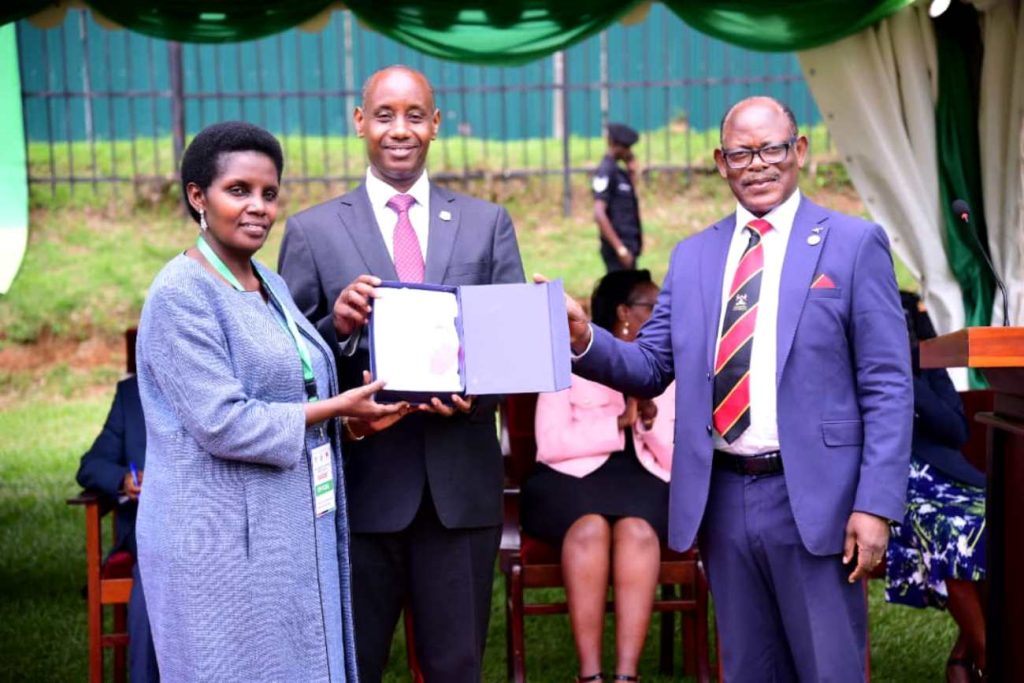
“I am proud to say that Mak-RIF has transformed Makerere’s academic and research landscape tremendously. Over the last five Financial Years, we have worked with other key stakeholders including Government ministries, institutions, agencies, organizations, and the private sector. Together, we have continued to increase the local generation of translatable research and scalable innovations that address key gaps required to drive Uganda’s development agenda, especially the un-funded priorities” stated Prof. Nawangwe.
In the same spirit, the Vice Chancellor applauded the Principal Investigator and Team Leader DARP, Mrs. Patience Rubabinda Mushengyezi and all the Team Members for the hard work that has improved the status of academic records and processes from manual processes to e-services. The DARP project is a collaboration between the Academic Registrar’s Department, College of Education and Externals Studies (CEES), College of Computing and Information Sciences (CoCIS) and the Directorate of Information and Communication Technology Support (DICTS). The DARP Project team includes: Prof. Betty Ezati, Dr. Peace Tumuheki, Dr. David Luyombya, Dr. Joyce Bukirwa, Ms. Ruth Iteu Eyoku, Mr. Juma Katongole, Mr. Joshua Muhumuza and Mr. Lubowa Gyaviira.
The Vice Chancellor also thanked the Makerere University Research and Innovations Fund (Mak-RIF) and the Mastercard Foundation for supporting different phases of the DARP Project.
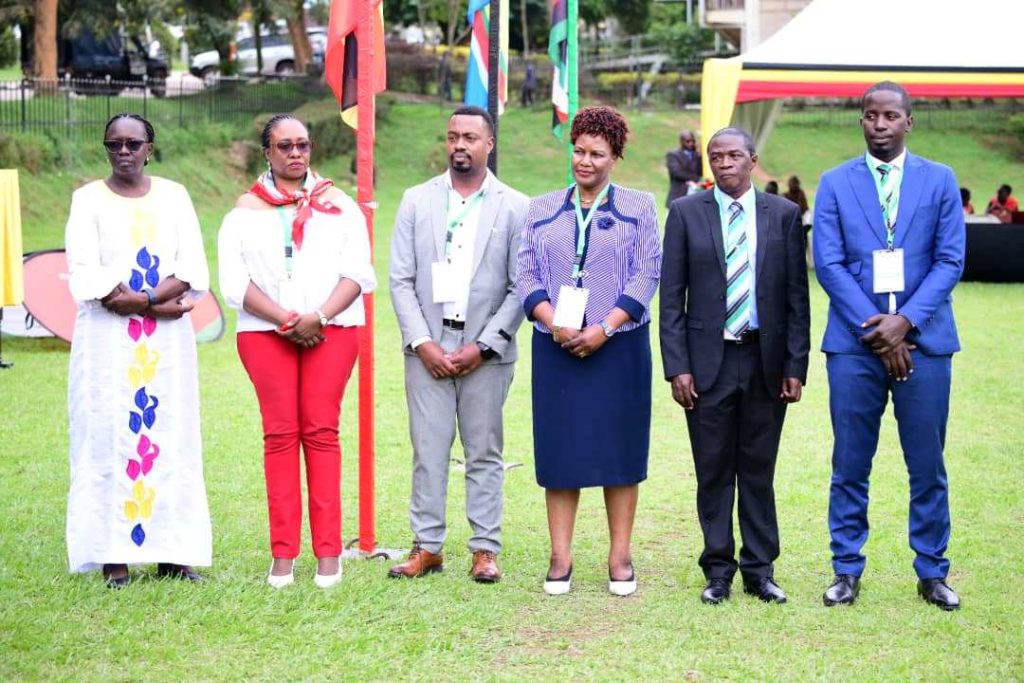
Mrs. Lorna Magara, the Chairperson of Makerere University Council acknowledged that launching the DARP project at Makerere University marked a significant step forward in digitalizing higher education services. She underscored that the transformational power of digitalization could not be overstated. She stated that by implementing an Academic Records Management System, the University would streamline the tracking and retrieval of academic files and establish a robust platform for digital certification and record verification.
“In an era where credential fraud poses a significant challenge, the DARP Project reinforces transparency, trust, and confidence in our academic processes. It is testament to our commitment to excellence. The DARP Project heralds a new era; one where our certificates and transcripts are shielded against increasingly sophisticated forgeries. By providing digitally verifiable academic documents, we empower employers worldwide to expedite verification procedures,” she articulated.
The Chairperson stated that Makerere University aims to create a dynamic and integrated learning environment with a goal to equip students with the skills and knowledge needed to thrive in an ever-evolving world. She emphasized the need to prioritize student-centeredness and adaptability which vision perfectly aligns with the DARP Project to ensure that the most deserving students can compete fairly in the job market alongside genuinely qualified candidates.
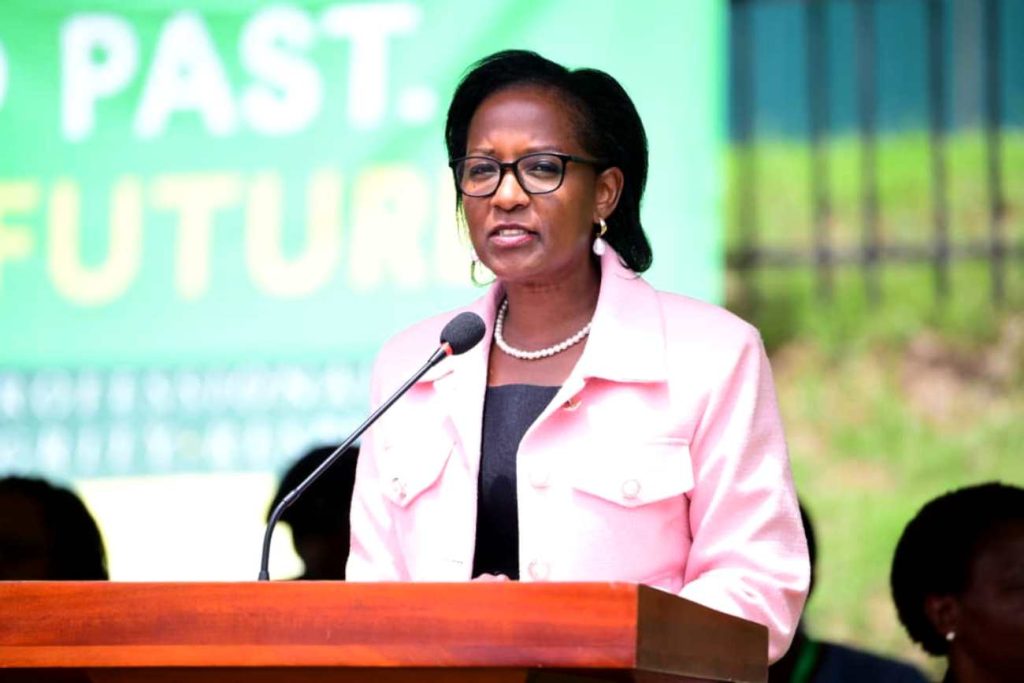
She advised that a system’s effectiveness hinges on the quality of input it receives, therefore, meticulous attention to detail is essential to ensure that the necessary information is accurately fed into the system to yield the expected outcomes. She recommended that vigilant effort has to be invested in ensuring quality processes in how the information is gathered and fed into the system, and the quality of persons tasked to do the work.
Mrs. Magara praised the DARP Principal Investigator for initiating the project in support of the University’s efforts to; address the critical element of maintaining integrity of academic records, significantly contributing to the University’s commitment to digitizing systems, and upgrading the process of archiving of records for ease in verification, certification, and retrieval.
She also extended appreciation to the Government of Uganda for the provision of funds through Mak-RIF, and to Mastercard Foundation for the provision of equipment and other support that will facilitate safe processing and storage of the academic documents.
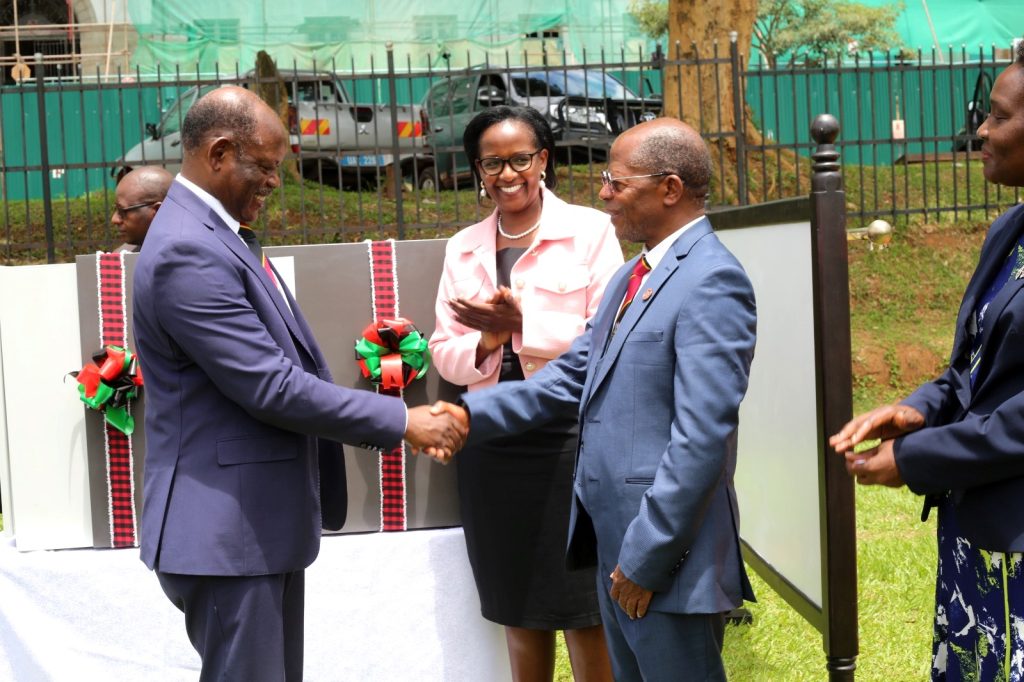
The Principal Investigator and Team Leader, DARP project, Mrs. Patience Rubabinda Mushengyezi proclaimed that the launch of the project was the birth of a new era in records management at Makerere University.
To enable the audience to understand and appreciate the situation before the DARP project, Mrs. Mushengyezi shared a documentary that highlighted the transformation from a purely manual process to a digital one. She added that the digitalization of student records from the 1980s changes the narrative of delays and long queues to fast, timely and friendly services to the students.
The Principal investigator disclosed that the DARP project team’s aspiration was to have the digitalization of students’ records rolled out in all the schools and colleges of the University. She observed that because of the hard work of the DARP team, they now have clear and well organized documents and the ‘ugly’ records shall never be seen again since they no longer exist. She expressed gladness that what started as a vision had become reality, culminating in the launch of the DARP project.
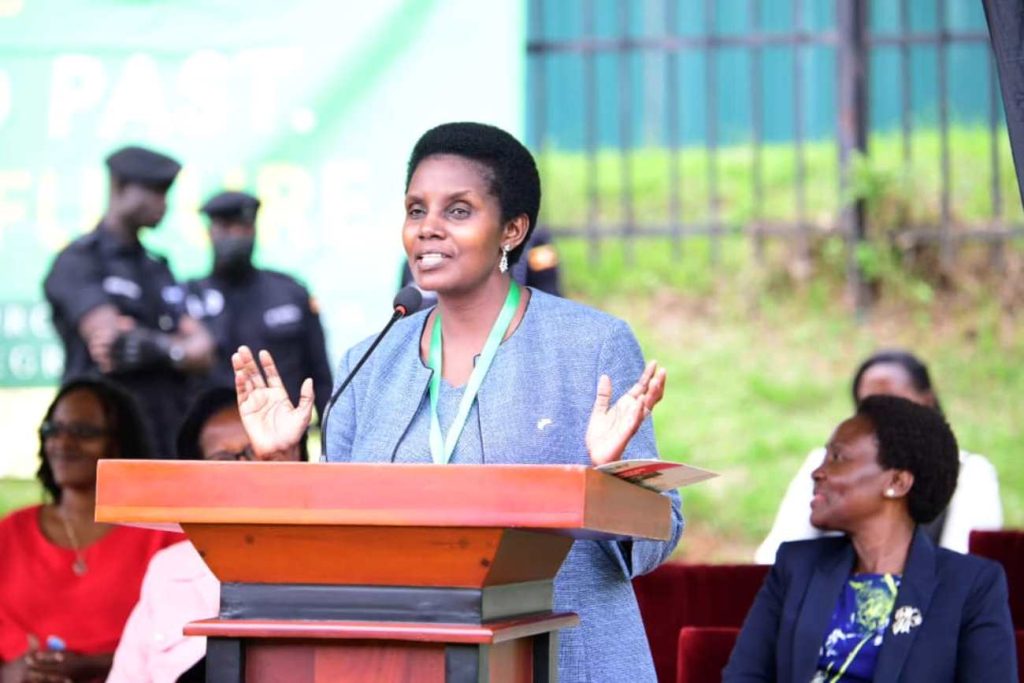
“Today, Makerere University is launching a new era of digital transformation in the management of students’ records and service delivery. We are changing the narrative of long queues, lengthy processes and we are now moving to efficient and digital services. We are here also to commission the registry of the students’ records and archive. The registry has been fitted with modern shelves with the capacity of storing over 30,000 students files but as we have seen, there is room for improvement and expansion. The archive has been fitted with modern shelves that have a capacity of storing over 100,000 students’ files and 21 wagons will store 170,000 students’ files,” Mrs. Mushengyezi declared.
Recalling the genesis of the DARP Project, Mrs. Mushengyezi shared that when the Government allocated support to the university’s research and innovations fund in 2019, she approached her colleagues and together, they submitted a project proposal. The project identified several challenges which were affecting records management at Makerere University namely; manual records handling, inadequate storage space, inadequate security for records, inexistent policy on records management, and lack of a system to streamline records management. The DARP project therefore set out to address these gaps with the ultimate goal of operating e-services.
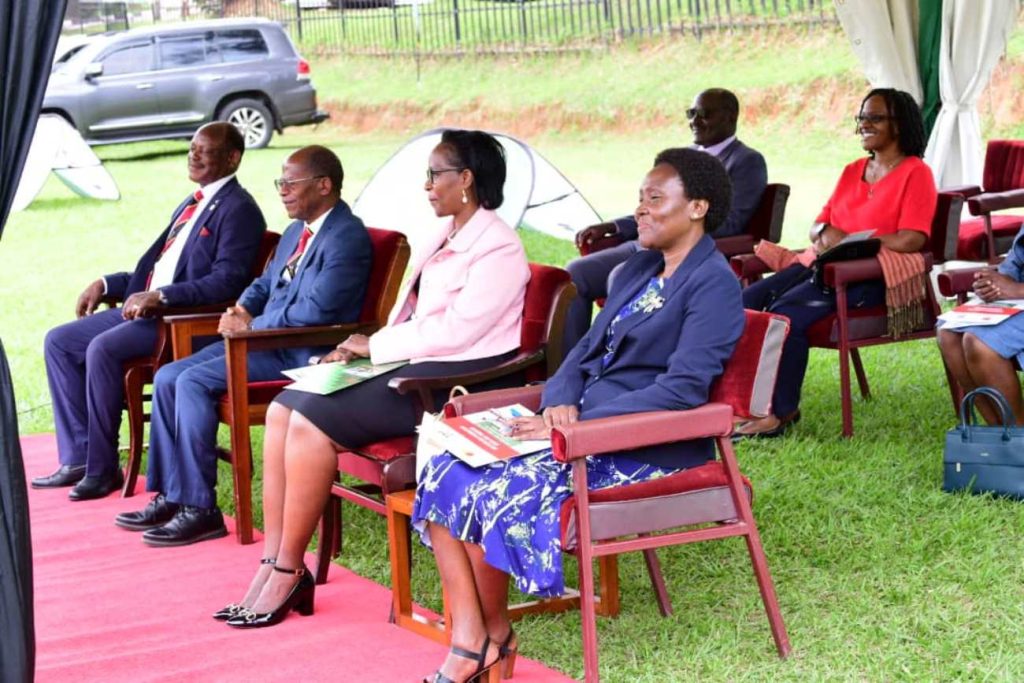
“The objectives of DARP Project were to digitalize academic processes including students’ files and examination results and other documents like senate minutes. We wished to establish a students’ records verification and certification Centre. We also wanted to use ICT to improve efficiency in conducting senate meetings and to archive existing manual documents into properly bound and referenced files. It has been a lot of hard work by the project team, but we have seen God’s hand in this transformational journey. I wish to say that we have achieved 95% of our objectives,” Mrs. Mushengyezi stated.
The Principal Investigator noted that the DARP project had created efficiency in the academic Registrar’s department with ability to generate reports on number of students by categories such as course, graduation cohort, academic disciplines i.e. Medicine, Law, Engineering etc., current enrolment and progression, as well as policies passed by the University Senate per year, and so on.
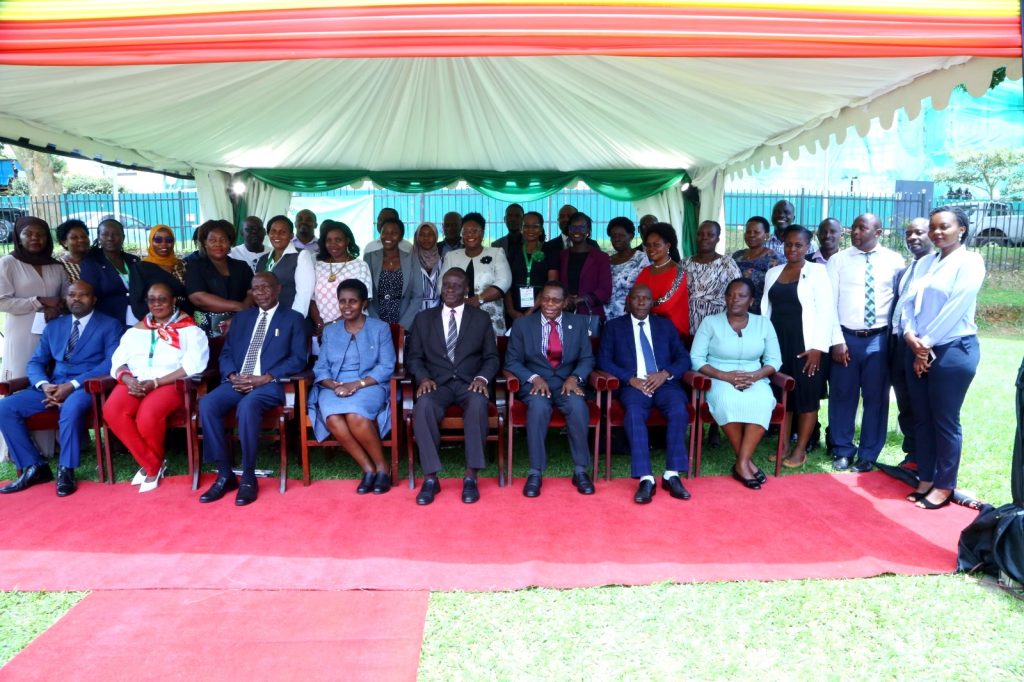
She thanked the Government of Uganda for funding the entire process by providing laptops, access control systems, CCTV cameras, printers, furniture, archival boxes, the 21 shelves, the wagons, stationery and facilitation of the entire team. She also thanked Mastercard Foundation for the support through the relief fund.
She appreciated the entire Makerere University Council and Management for the support rendered towards the establishment of the DARP project and for prioritizing the Project as a university programme. In a very special way, she acknowledged Prof. William Bazeyo, the former Deputy Vice Chancellor (Finance and Administration), Prof. Fred Masagazi Masaazi-Chairperson of Mak-RIF Grants Management Committee (GMC), Prof. Umar Kakumba, Deputy Vice Chancellor (Academic Affairs), Mr. Alfred Masikye Namoah, former Academic Registrar and the Academic Registrar, Prof. Buyinza Mukadasi, the University Secretary, Mr. Yusuf Kiranda, Deputy Registrars namely Mr. Charles Ssentongo and Mr. Tom Otim, for providing tireless support.
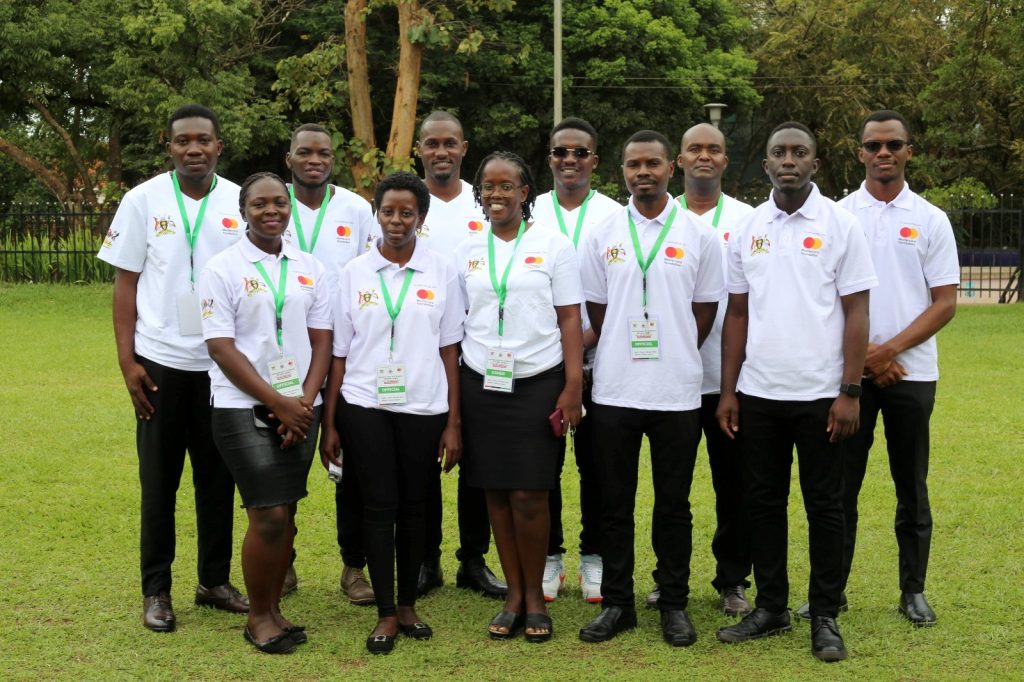
In addition, she recognized the supervisors in the Directorate of Research and Graduate namely Prof. Edward Bbaale and Ms. Prossie Nakayiki.
The Principal Investigator, Mrs. Mushengyezi also appreciated the members of staff whom she referred to as DARP Foot Soldiers for organizing, sorting and scanning the records.
In recognition of her selfless service and leadership, the DARP project team members through the Vice Chancellor, Prof. Barnabas Nawangwe presented Mrs. Patience Mushengyezi with a plaque and bouquet of flowers.
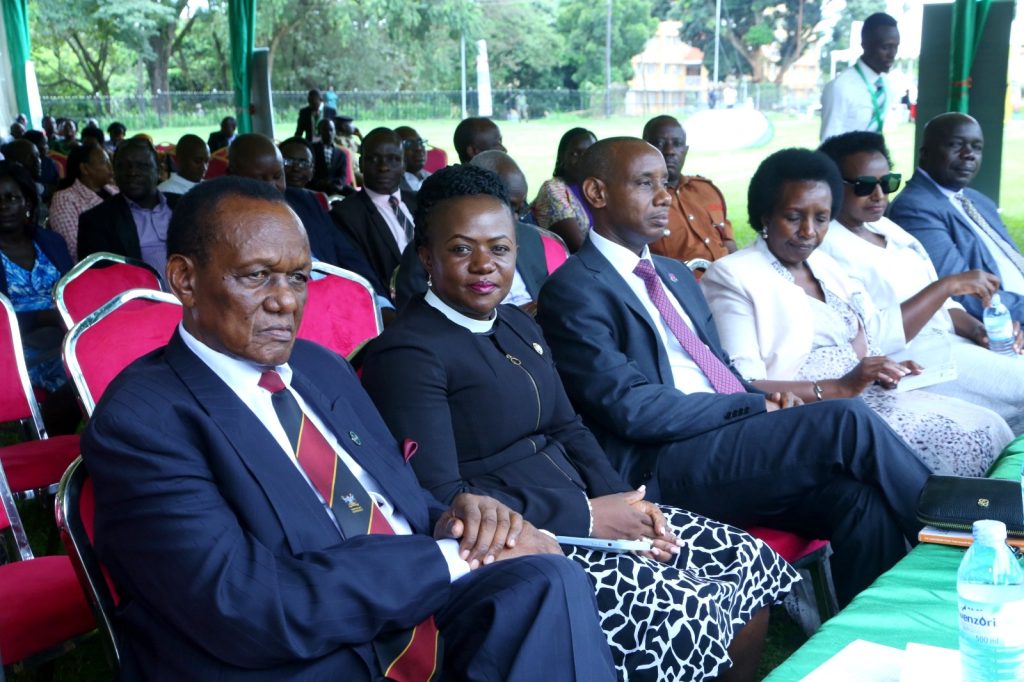
The DARP project launch was graced by the Chancellor Emeritus, Prof. Ezra Suruma, Members of Parliament, Vice Chancellors of other Universities, former Vice Chancellors, former Deputy Vice Chancellors in charge of Finance and Administration, the Makerere University Students’ Guild, and Mrs. Mushengyezi’s family. The Chaplain, St. Francis Chapel, Rev. Dr. Lydia Nsaale Kitayimbwa led the opening prayer while the event was moderated by Dr. Zahara Nampewo, the Deputy Principal of the School of Law and Ms. Ritah Namisango, Principal Public Relations Officer and Chairperson of the Protocol, Publicity and Media Sub-Committee for the launch. The Department of Performing Arts and Film was on hand to lead the anthems and keep the guests entertained.
General
Mak holds Mental Health Awareness Campaign for International Students
Published
1 day agoon
April 22, 2024By
Mak Editor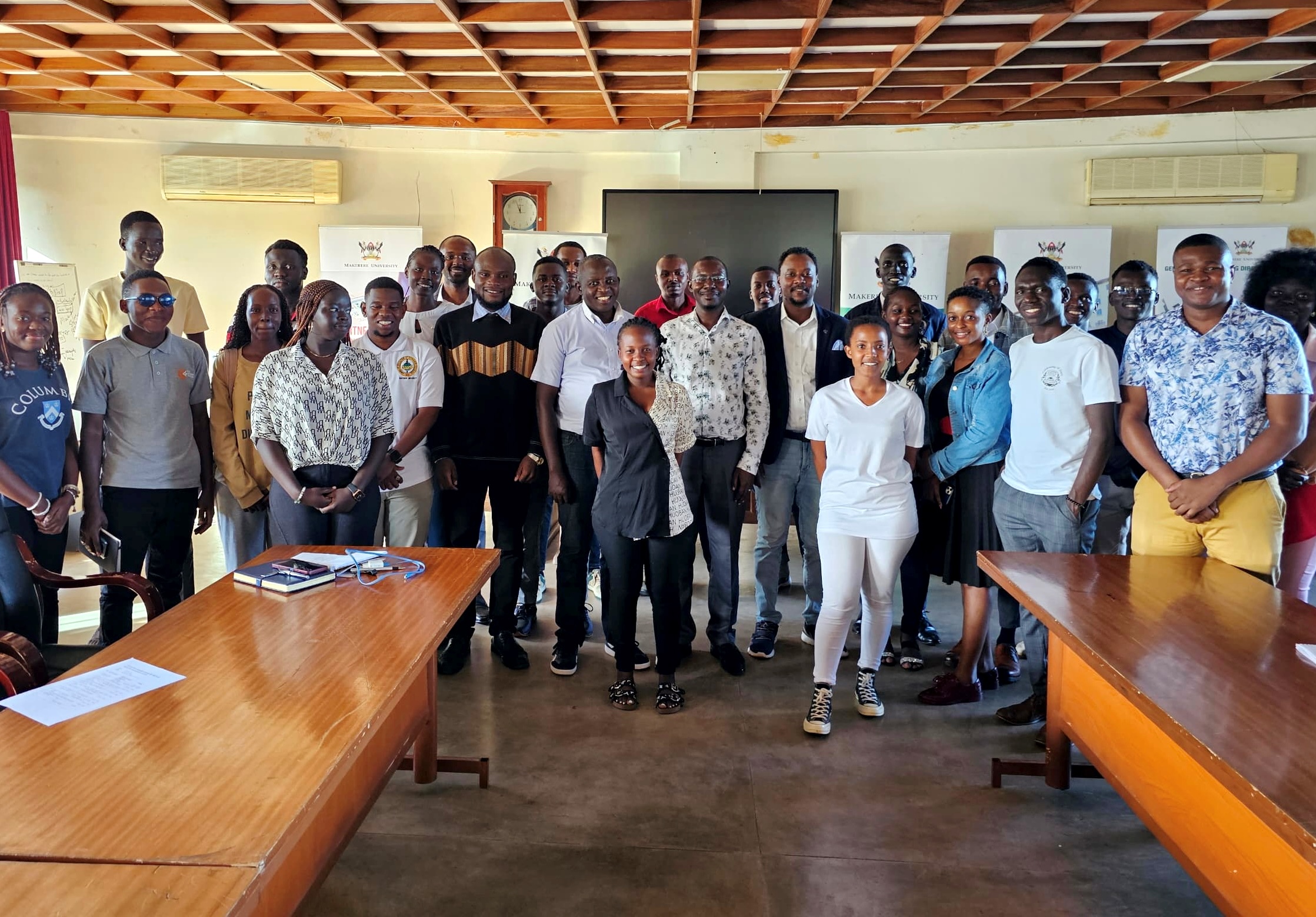
By Betty Nabisubi
On Friday 12th April 2024, over 100 international students convened at Makerere University to participate in the Mental Health Awareness Campaign organized by the International Students Union in partnership with the Counselling and Guidance Centre, International Office and Office of the Dean of Students.
The campaign, which included both physical and virtual participants, rallied international students to always ask for help. The annual event enables students to participate in engaging discussions, and provides a platform for them to openly share and address personal and academic challenges, both on and off campus.
The aim of holding a mental health awareness campaign for international students in the university is to promote mental well-being and provide support and resources for students facing mental health challenges. Furthermore, it seeks to raise awareness about common mental health issues, reduce stigma surrounding mental illness, and educate students on available mental health services and support networks. Additionally, it aims to empower students to recognize signs of distress, encourage help-seeking behavior, and foster a supportive and inclusive campus community where students feel comfortable discussing mental health concerns.
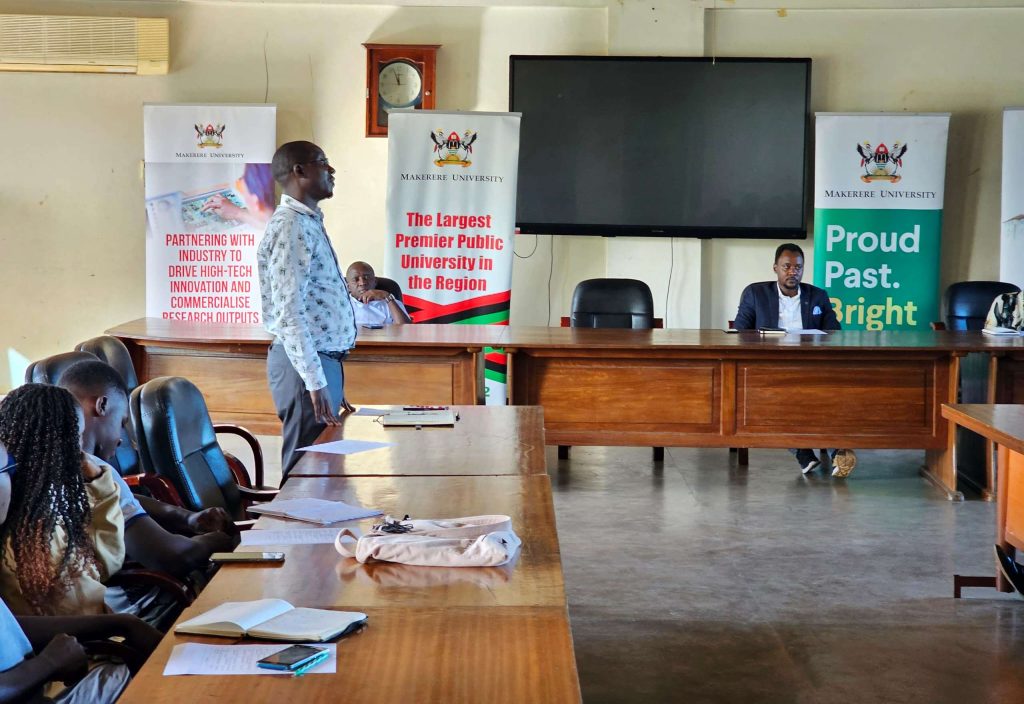
In line with the Mental Health Awareness Campaign theme; It is ok to ask for help, each Official urged the international students to seek guidance and support from the right offices and entities within the Makerere University system.
The Office of the Dean of Students represented by Mr. Peter Mwanja, Warden of University Hall emphasized the importance of students seeking help rather than isolating themselves in their hostels when faced with problems. He urged students to refrain from complaining about lack of assistance, but instead take action by speaking up when faced with challenges. Mr. Mwanja pledged to stand with the students throughout their academic journey so as to ensure that they have a fruitful stay at Makerere University.
In the same spirit, the Manager of the Makerere University Counselling and Guidance Centre, Mr. Henry Nsubuga called upon international students to utilize their services. He appealed to students to seek for help whenever they feel distressed.
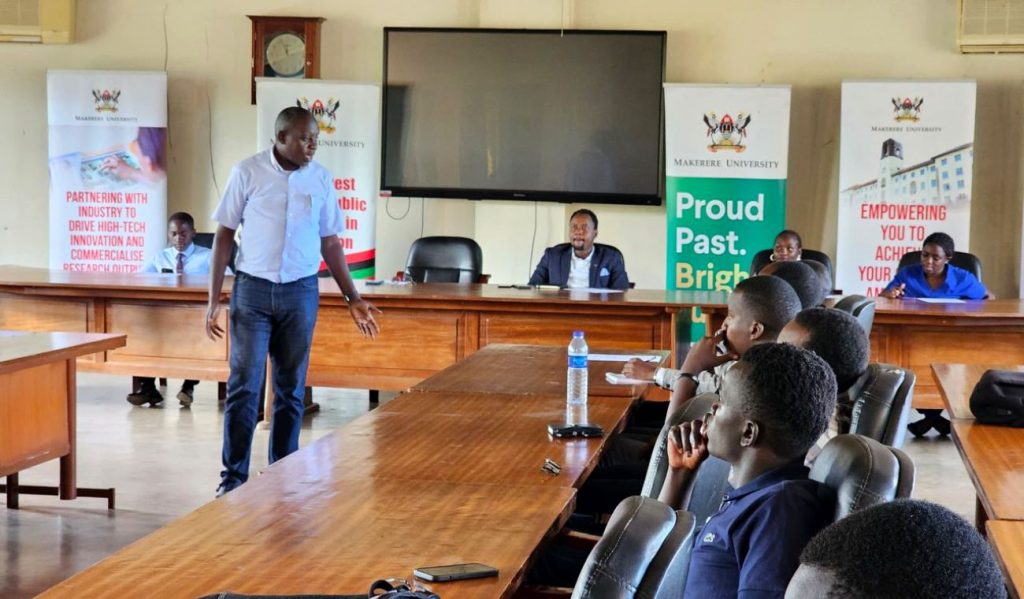
“Please come to the Centre when you need help. The Centre is ready to provide assistance upon any distress signal. I assure you that nobody will judge you for not being okay. We have professional counsellors who are willing to help,” remarked Mr. Nsubuga. The Makerere University Counselling and Guidance Centre is conveniently located at Plot 106, Mary Stuart Road, opposite Mary Stuart Hall.
Dr. Gardner Herbert from the Julius Nyerere Leadership Centre at Makerere University emphasized the importance of emotional intelligence, which encompasses the ability to understand, manage, and express one’s own emotions effectively, as well as to recognize and respond appropriately to the emotions of others. He highlighted the significance of students possessing skills such as self-awareness, self-regulation, social awareness, and relationship management.
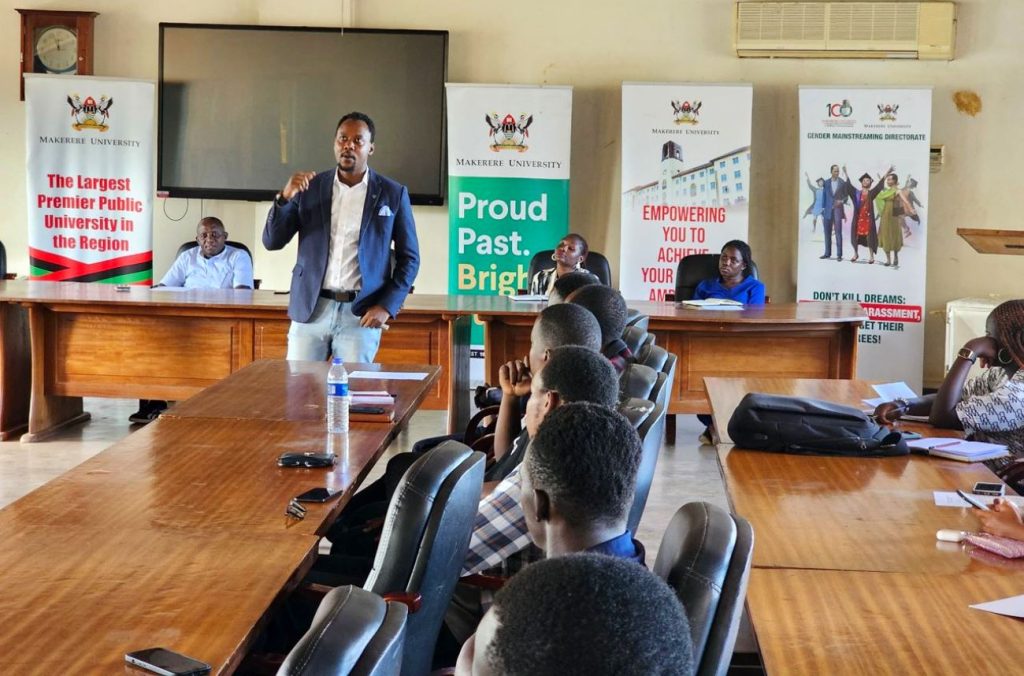
Self-awareness, he emphasized, serves as the foundation of emotional intelligence. This involves recognizing and understanding one’s own emotions, strengths, weaknesses, values, and motivations. Dr. Gardner explained that ndividuals with high self-awareness are better equipped to comprehend how their emotions influence their thoughts and behaviors, leading to more informed decision-making and greater self-control.
Mr. Gerald Ochwo on behalf of the Makerere University International Office encouraged the audience to visit the premises on Flat A5, Block A, Lincoln Flats for their mandate is anchored on ensuring that International students’ university experience is enriching. Furthermore, he emphasised the importance of students managing their visas proactively, instead of rushing to renew them either at the last minute or upon expiry. He pledged to organize more events to foster relationships among students.
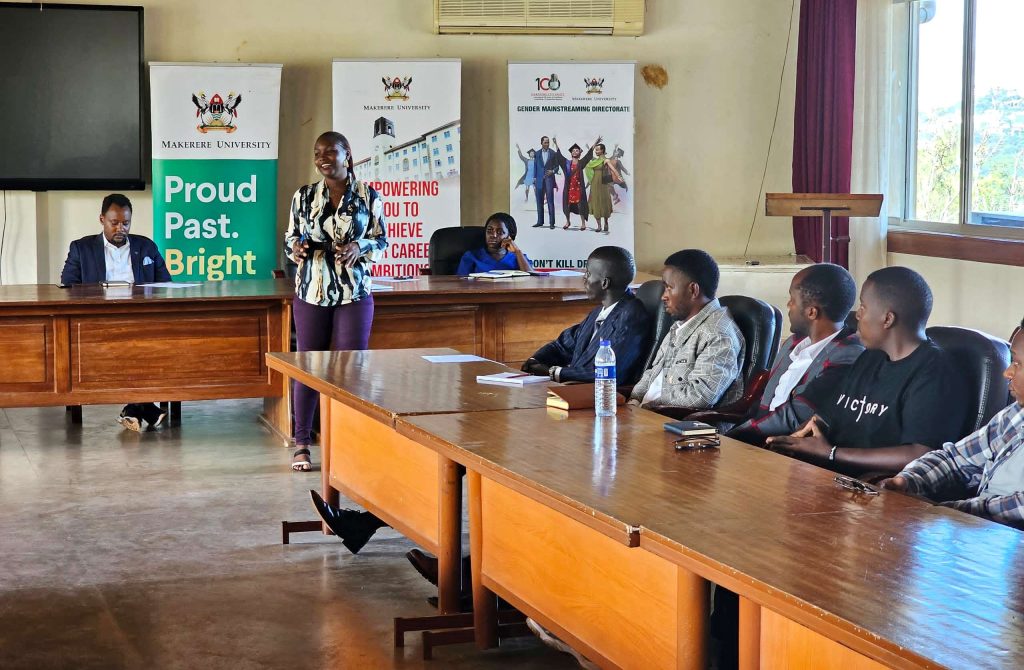
Focusing on nurturing a supportive environment for students away from home, the International Office invited Ms. Olivia Mwanje, a student of Makerere University pursuing a Master’s degree in Climate Change and Development at the College of Agricultural and Environmental Sciences to share a lived experience.
Ms. Mwanje was one of the beneficiaries of the exchange students’ programme to Utrecht University in the Netherlands. Her testimony served to demonstrate to international students that with dedication and sacrifice, it is possible to leave one’s home country, study abroad, and excel both academically and personally. She encouraged students to remain focused on their academic programmes despite the allure of other pursuits.
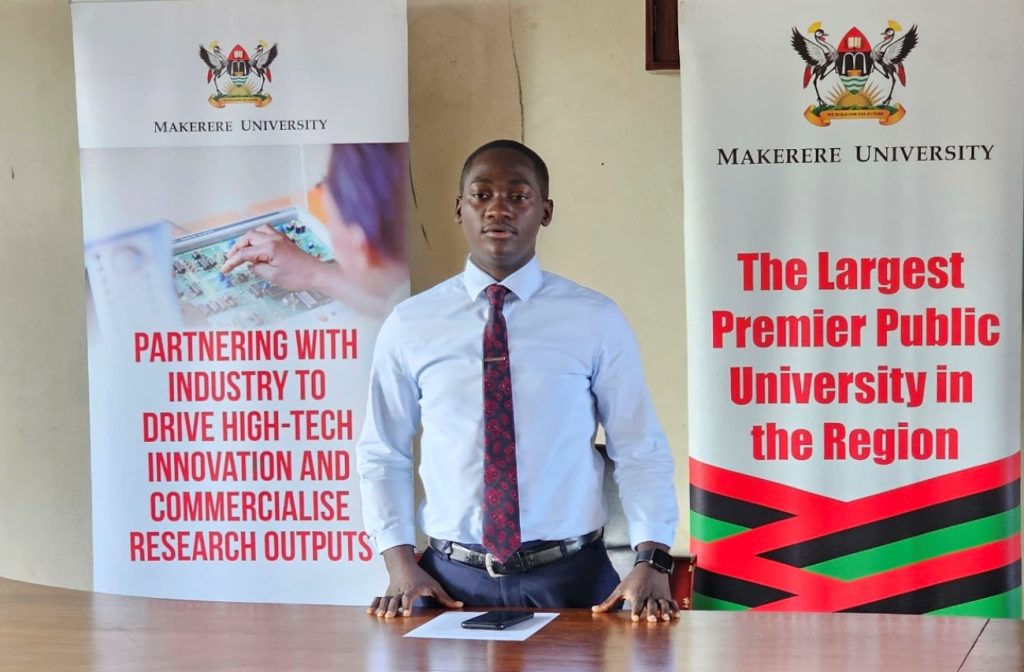
“I urge you, fellow students, to remain steadfast in your educational aspirations while exploring the opportunities available. Prioritize your academic goals over non-academic pursuits,” said Ms. Mwanje. She stressed that deviating from the primary objective leads to unintended consequences. For instance, she shared stories of students who abandoned their academic pursuits for menial jobs upon arrival abroad. Ms. Mwanje advised students to stay committed to their studies and, upon completion, pursue other non-academic endeavors if they so desire.
The Guild President, H.E. Vincent Lubega Nsamba expressed the Guild Leadership’s strong commitment to ensuring that international students have a comfortable stay at Makerere University. He encouraged international students to seek counselling whenever they feel distressed and emphasized the importance of talking to peers for support.
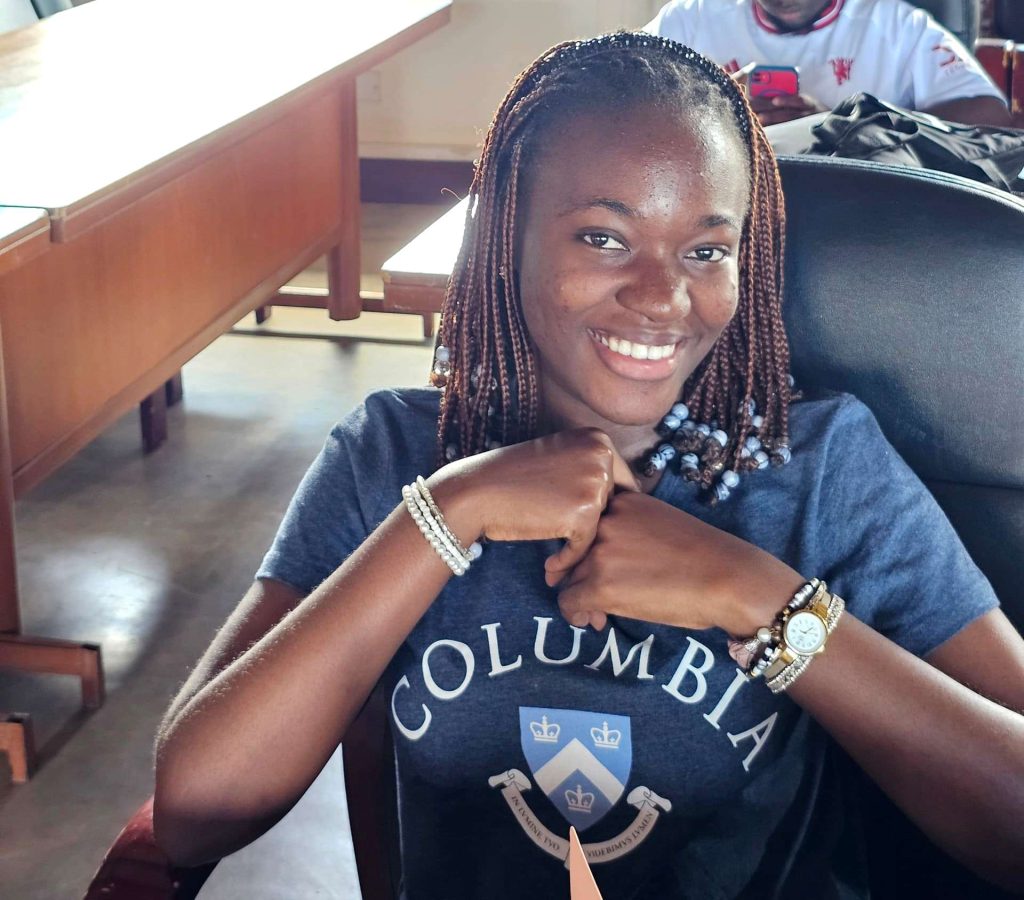
One of the international student leaders, Mr. Harrison Igwe expressed enthusiasm for organizing activities that promote unity within the international student community at Makerere University. The goal of the activities, he said, is to enhance camaraderie and strengthen support networks among international students.
General
Dr. Martin Aliker – Celebrating A Life Well Lived
Published
1 week agoon
April 16, 2024By
Mak Editor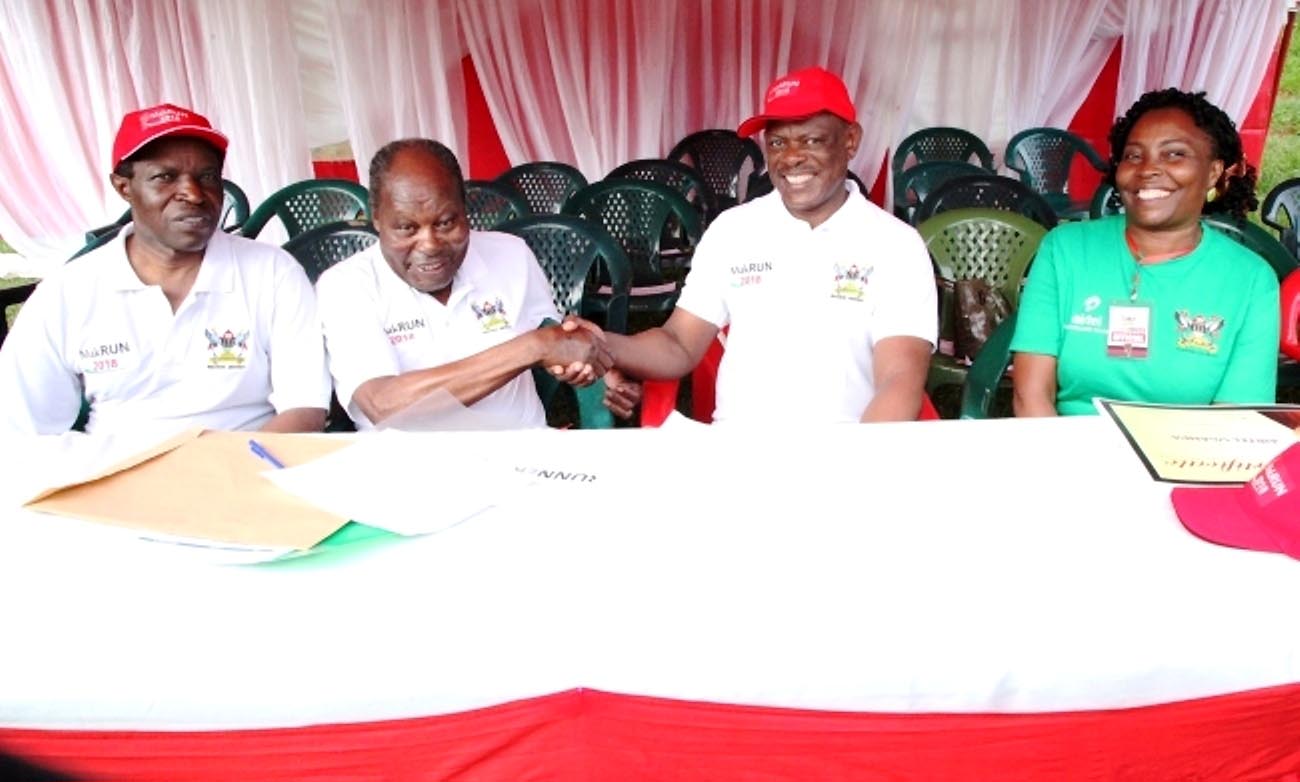
The Makerere University Council, Senate, Alumni and the entire students’ community has learnt with great sorrow of the death of your beloved head, Dr. Martin Aliker. Please accept our sincerest condolences during this trying time.
Dr. Aliker joined Makerere College then in 1948 and shortly thereafter received a scholarship to join Northwestern University, Illinois where he earned a Bachelor of Political Science. Being an ardent student, he also earned a Fulbright Fellowship at Northwestern University, and graduated with a Doctor of Dental Surgery, later becoming a Fellow of the Royal College of Dental Surgeons of the United Kingdom.
Dr. Aliker has throughout his long and well-lived life projected an enviable brand, reflective of a professional and hardworking gentleman who has excelled in all walks of life as a distinguished alumnus, scholar, influential business leader, entrepreneurial mentor, and one of Uganda’s and indeed Africa’s and the Commonwealth’s leading senior citizens.
The name Dr. Martin Aliker has stood the test of time as one attributable to dedicated service with impeccable integrity, tested and proven business acumen, making him a distinguished source of inspiration to both the young and old. It was therefore with great pride that Makerere University on 17th July 2014 appointed him as the Chairperson of the pioneer Board of Trustees in charge of the Makerere University Endowment Fund (MakEF).
Under his stewardship, the Inaugural Board had at the end of their term in 2019 grown MakEF’s onshore fund from nothing in 2014 to UGX 1.5 Billion, while the offshore fund was valued at 1.5 Million GBP.
We remain forever thankful to God for the gift of Dr. Martin Aliker’s inspirational life and pray that the good Lord will comfort you his beloved and rest his soul in eternal peace.
Umar Kakumba (PhD)
AG. VICE CHANCELLOR
Related articles
Dr. Martin Aliker to Prof. Maggie Kigozi: The Legacy of MakEF
Bidding Farewell to Pioneer MakEF Board of Trustees
MakRun 2019 Raises Over UGX100Million
Mak receives property: NIC hands over Plot 2A Kampala Road
MakRun2018: The Push Towards a Centre that Reflects Dynamism of the 21st Century Student
MakRun2017 Gives Over 190m Roaring Start to Students Centre Project
Thousands Run for Mak Students’ Centre
Fulbright celebrates 70years of partnership and achievements
Makerere Inaugurates Endowment Fund Board of Trustees
Ngugi revitalizes Pan-Africanism as Mak honours Nyerere
Trending
-
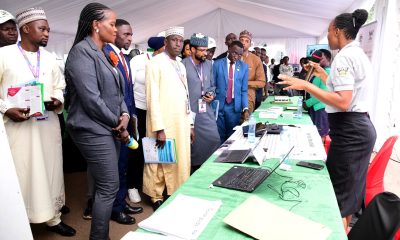
 Computing & IS6 days ago
Computing & IS6 days agoFree Course: Introduction to Data Science
-
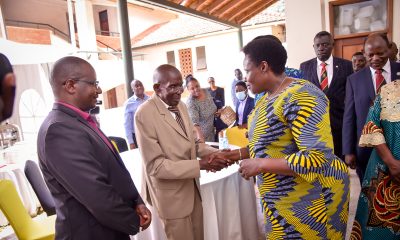
 General1 week ago
General1 week agoProf. Justin Epelu-Opio, Our Longest Serving DVC Rests
-
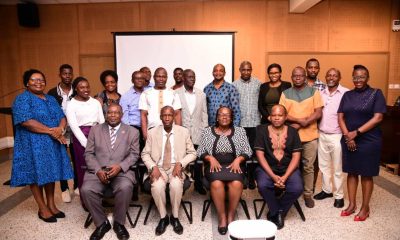
 Education4 days ago
Education4 days agoGovernment Asked to Make Fine Art Compulsory in Secondary Schools
-
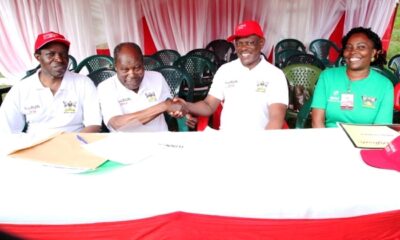
 General1 week ago
General1 week agoDr. Martin Aliker – Celebrating A Life Well Lived
-
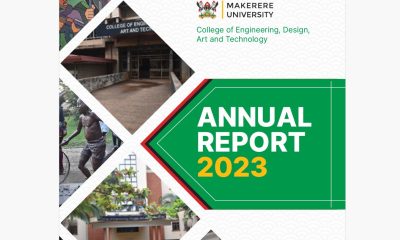
 Engineering, Art & Tech2 weeks ago
Engineering, Art & Tech2 weeks agoCEDAT Annual Report 2023
